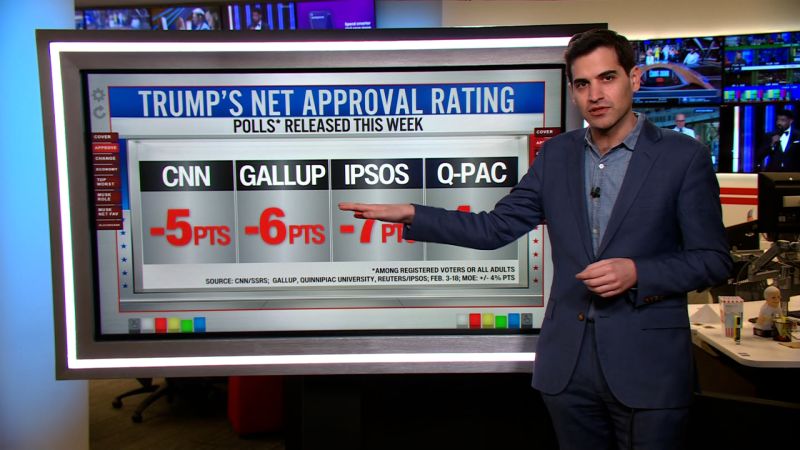Trump's Approval Rating Unraveled: CNN's Harry Enten Reveals Shocking Poll Insights

Trump's Approval Ratings: A Deep Dive into the Latest Polling Data
In the ever-shifting landscape of political sentiment, CNN's senior data reporter Harry Enten offers a comprehensive analysis of President Donald Trump's net approval ratings, revealing fascinating insights into public perception.
Delving beneath the surface of raw numbers, Enten meticulously examines the nuanced trends that define Trump's standing with the American electorate. His expert breakdown goes beyond simple percentages, providing context and depth to the complex world of political polling.
By comparing multiple polling sources and tracking longitudinal data, Enten illuminates the subtle shifts in public opinion. His analysis considers key factors such as demographic variations, regional differences, and the potential impact of recent political events on Trump's approval ratings.
The data tells a story of a presidency marked by polarization, with approval ratings that reflect the deep political divisions within the United States. Enten's rigorous approach helps viewers and readers understand the intricate dynamics behind these numbers.
Whether you're a political enthusiast, a data nerd, or simply curious about the current political climate, this in-depth exploration provides a clear, nuanced perspective on President Trump's public standing.

